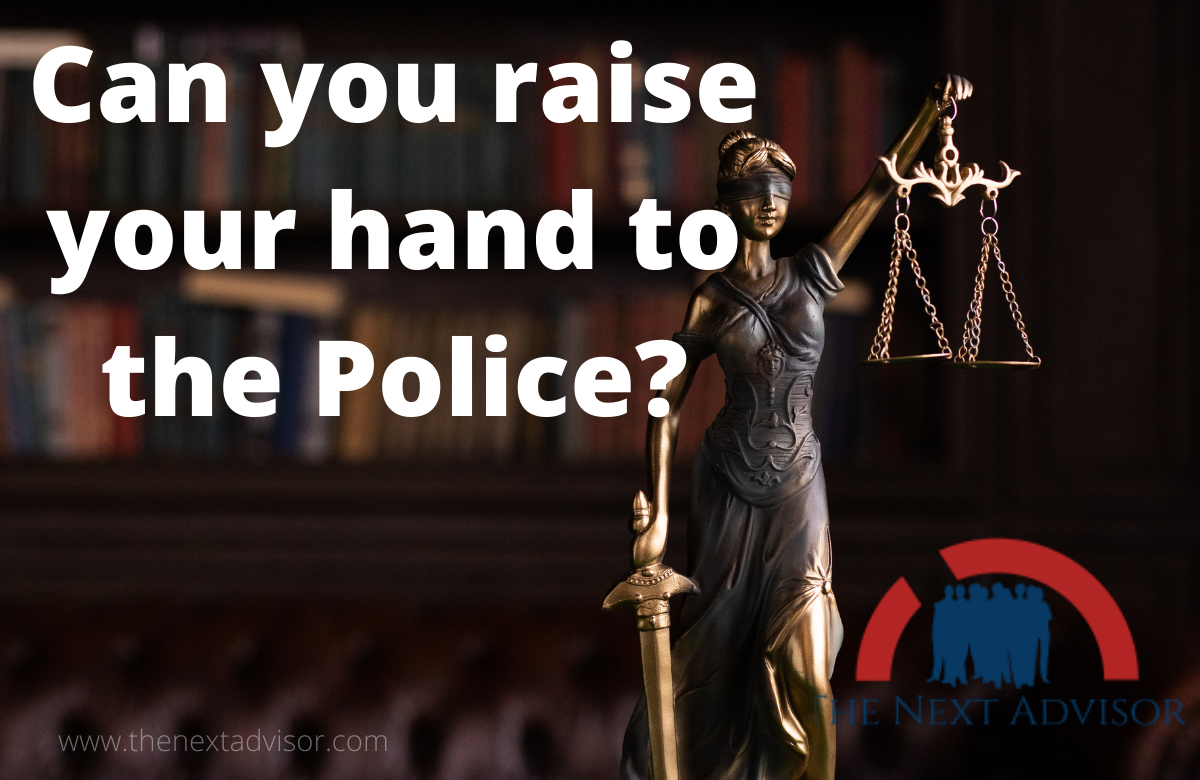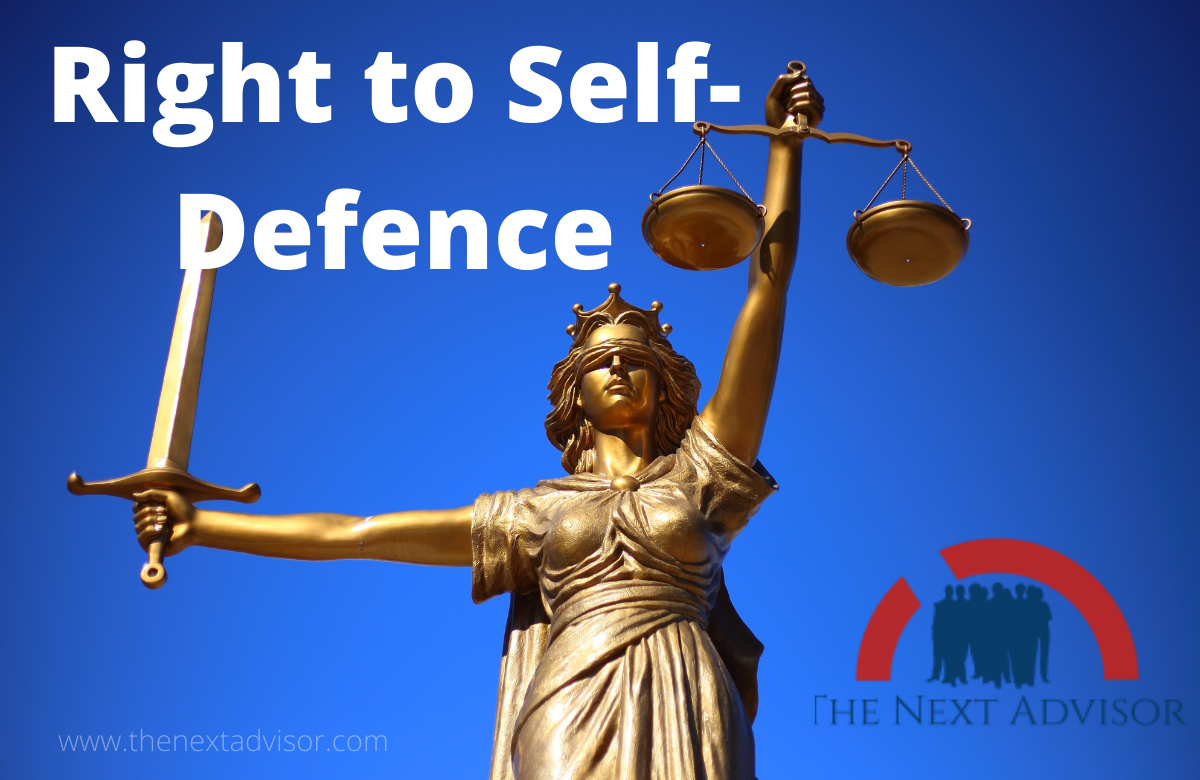Hello friends, today I have brought a very good topic for you. Which is the right of Self-defense means how many injuries can be done to someone in Self-defence? And what about the person who attacked someone? Does that person himself attack someone also has self-defence right? So that’s two questions. I will explain the answer to these two questions in a very interesting way, after which you will hardly have any question about the Right of Defence in your mind.
The first question is, Who has the right to self-defence? And how much damage can be done to someone in defence? And the second question is that the person who attacks someone himself, does that person have the right of defence to himself? The answer to these questions, I will explain further in a very interesting way.
There is Chapter Four of the Indian Penal Code which heading is General exception, in which the Sections up to section 96 to Section 106 talk about self-defence.
You must have ever seen the movie and you must have seen in the movie that the hero who is his own kills so many people alone and even after that he does not go to Jail, Why does it happen that even after killing a lot of people, the Hero of that movie does not go to Jail?
The simple answer is that behind this is the concept of self defence, and the law of self-defence. You must have seen that the film is about to over the film was complete about two and half-hour. when the whole film comes to an end, then the hero and villain are standing in front of each other, and Hero has a Pistol in his hand. When this scene goes on then our mind thinks that makes it quick, pick up Pistol and shoot the villain and finish the film, but it doesn’t happen, but instead of killing the villain, Hero would have thrown the Pistol down. The villain is the worst man at this point in time. Yet the hero of that movie does not kill him, he throws the Pistol down, then it is shown in this scene because if you hit an unarmed then it is considered as murder, that is why a Section has been given in the IPC Sections in which it has been said that you can cause to someone as much harm as he would have been likely to cause harm you.
There is a sword in the hand of the Hero and a sword in the hand of a villain at this point the matter is equality, You must have seen in your old movies when the villain and the hero are standing in front of each other and the hero has a sword in his hand, the hero gives the sword lying on the side t the villain and then that start fighting with each other. When they start fighting with each other and after 15-20 minutes fight like villain lying unconscious on the ground and he doesn’t kill villain at that. He would throw down the Pistol was in his hand. Then the hero goes to meet his Girlfriend or his Mother, who was come there to meet him, at the same time villain wakes up, the hero throws his pistol near the villain and after regaining consciousness, the villain picks up the same Pistol and tries to kill the Hero.
Then when the villain tries to kill Hero, at the same time, the hero kills the villain whatever other weapon he has. So this time Hero has the apprehension of death that is why if the hero has killed the villain then it will not be considered as murder. This is considered as self-defence as he would have killed the villain to defend himself.

can you raise your hand to the Police?
The things done in self-defence does not consider crimes, it is given in Section 96 of IPC. And well explained in Chapter Four of IPC.
Section 96 in The Indian Penal Code
96. Things done in private defence.—Nothing is an offence that is done in the exercise of the right of private defence.
Section 97 in The Indian Penal Code
97. Right of private defence of the body and of property.—Every person has a right, subject to the restrictions contained in section 99, to defend—
(First) — His own body, and the body of any other person, against any offence affecting the human body;
(Secondly) —The property, whether movable or immovable, of himself or of any other person, against any act which is an offence falling under the definition of theft, robbery, mischief or criminal trespass, or which is an attempt to commit theft, robbery, mischief or criminal trespass.
I had one more question that if it is a person who attacks someone himself, so dies that person have self-defence rights?
–NO, The person who starts himself does not have the right to self-defence. (Explained in one Example of Section 97 of IPC.)
In Section 100 of IPC, it has been said that a person can be killed in the defence of the body. And in Section 103 of IPC, it has been said that a person can be killed in the defence of private property.
Section 100 in The Indian Penal Code
100. When the right of private defence of the body extends to causing death.—The right of private defence of the body extends, under the restrictions mentioned in the last preceding section, to the voluntary causing of death or of any other harm to the assailant, if the offence which occasions the exercise of the right be of any of the descriptions hereinafter enumerated, namely:—
(First) — Such an assault as may reasonably cause the apprehension that death will otherwise be the consequence of such assault;
(Secondly) —Such an assault as may reasonably cause the apprehension that grievous hurt will otherwise be the consequence of such assault;
(Thirdly) — An assault with the intention of committing rape;
(Fourthly) —An assault with the intention of gratifying unnatural lust;
(Fifthly) — An assault with the intention of kidnapping or abducting;
(Sixthly) — An assault with the intention of wrongfully confining a person, under circumstances which may reasonably cause him to apprehend that he will be unable to have recourse to the public authorities for his release.
Section 103 in The Indian Penal Code
103. When the right of private defence of property extends to causing death.—The right of private defence of property extends, under the restrictions mentioned in section 99, to the voluntary causing of death or of any other harm to the wrong-doer, if the offence, the committing of which, or the attempting to commit which, occasions the exercise of the right, be an offence of any of the descriptions hereinafter enumerated, namely:—
(First) — Robbery;
(Secondly) —House-breaking by night;
(Thirdly) — Mischief by fire committed on any building, tent or vessel, which building, tent or vessel is used as a human dwelling, or as a place for the custody of property;
(Fourthly) —Theft, mischief, or house-trespass, under such circumstances as may reasonably cause apprehension that death or grievous hurt will be the consequence if such right of private defence is not exercised.
One more essential thing that remained to understand here is that,
if crowed attacked on someone and that man on whom a crowd is attacking, and that man is having the apprehension of death, and therefore the man starts to shooting by the Pistol and in this attack if anyone becomes dead this act also comes under self-defence.(Section 106 IPC)
Section 106 in The Indian Penal Code
106. Right of private defence against deadly assault when there is a risk of harm to innocent person.—If in the exercise of the right of private defence against an assault which reasonably causes the apprehension of death, the defender is so situated that he cannot effectually exercise that right without risk of harm to an innocent person, his right of private defence extends to the running of that risk.
Illustration- A is attacked by a mob who attempt to murder him. He cannot effectually exercise his right of private defence without firing on the mob, and he cannot fire without the risk of harming young children who are mingled with the mob. A commits no offence if by so firing he harms any of the children.

























